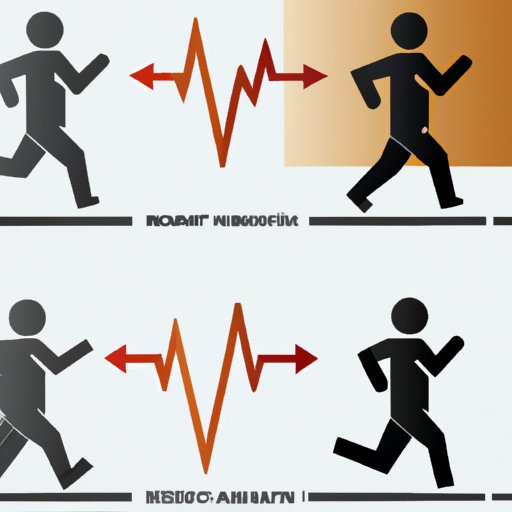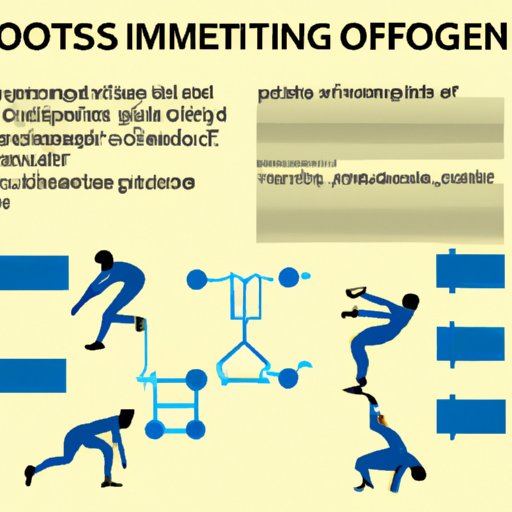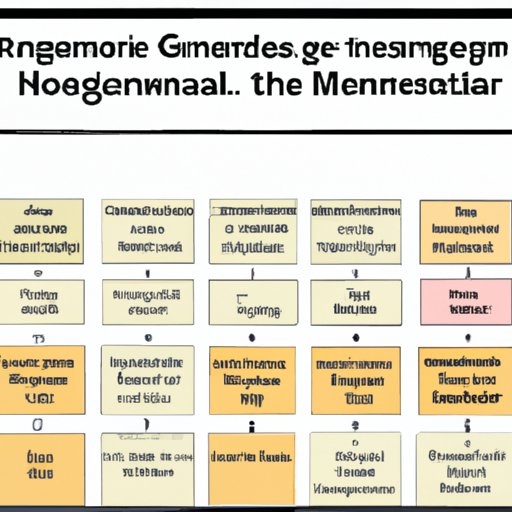Introduction
Fitness is a concept that has been widely studied in the field of biology, as it is closely related to the process of evolution by natural selection. In its simplest form, fitness is a measure of an organism’s ability to survive and reproduce in its environment. This article will explore the role of fitness in biology, examining its impact on evolutionary processes, human health, and organismal development.
Exploring the Role of Fitness in Biological Evolution
In order to understand the role of fitness in biology, it is important to first examine how it relates to the process of natural selection. Natural selection is the process by which certain traits become more or less common in a population over time due to their effect on an organism’s ability to survive and reproduce. Fitness levels are determined by the degree to which an individual’s traits help them survive and reproduce in their environment. Those with higher fitness levels are more likely to pass on their traits to future generations, while those with lower fitness levels may not be able to do so.
Different environments can also have an effect on fitness levels. For example, a species that lives in a cold climate may be more fit if it has thick fur, while a species that lives in a hot climate may be more fit if it has thin fur. Mutations, or changes in an organism’s genetic code, can also affect fitness levels. A mutation that results in a beneficial trait may increase an organism’s fitness level, while a mutation that results in a detrimental trait may decrease its fitness level.
Defining Fitness in Terms of Biology
In order to better understand the concept of fitness in biology, it is necessary to define some terms. Heritability is the measure of how much of an organism’s traits are passed on from one generation to the next. Genotype is an organism’s genetic makeup, while phenotype is the physical characteristics that result from that genetic makeup. Genetic variation is the presence of different alleles, or forms of a gene, within a population.
Genetic variation plays an important role in determining fitness levels. Those with beneficial alleles are more likely to have higher fitness levels than those without them. Additionally, environmental factors such as food availability, predation, and disease can also affect fitness levels. To fully understand the concept of fitness in biology, it is important to consider both genetic and environmental factors.

The Impact of Physical Fitness on Human Health
Physical fitness is an important aspect of human health. Regular physical activity can reduce the risk of chronic diseases such as diabetes, heart disease, and obesity. Physical activity has also been shown to improve mental health, increase energy levels, and reduce stress. Furthermore, diet plays an important role in achieving optimal physical fitness. Eating a balanced diet with plenty of fruits, vegetables, and lean proteins can help to maintain a healthy weight and improve overall physical fitness.
Examining the Relationship Between Exercise and Biological Fitness
Exercise is essential for achieving optimal fitness levels. Aerobic exercise, such as running and swimming, increases cardiovascular endurance and improves oxygen uptake. Anaerobic exercise, such as weightlifting and sprinting, builds strength and increases muscle mass. Resistance training, which involves using weights or other resistance tools to build muscle, is also an effective way to improve fitness levels. Additionally, nutrition plays an important role in achieving optimal fitness. Eating a balanced diet with plenty of protein, complex carbohydrates, and healthy fats can help to fuel workouts and maximize fitness gains.

Analyzing How Fitness Impacts Organismal Development
Fitness is also an important factor in organismal development. Studies have shown that higher levels of physical fitness are associated with faster growth rates and longer lifespans. Additionally, different environments can have an impact on organismal development. For example, organisms living in nutrient-rich environments tend to have higher fitness levels than those living in nutrient-poor environments.

Investigating the Role of Genetics in Fitness Levels
Genetics also play an important role in determining fitness levels. The presence of beneficial alleles can increase an organism’s fitness level, while the presence of detrimental alleles can decrease its fitness level. Additionally, the environment can influence an organism’s fitness level, as environmental factors such as food availability, predation, and disease can all affect an organism’s ability to survive and reproduce.
Heritability is also an important concept when considering the role of genetics in fitness levels. Heritability measures the extent to which an organism’s traits are passed on from one generation to the next. Understanding the concept of heritability is essential for understanding how genetics and the environment interact to influence fitness levels.
Conclusion
In conclusion, fitness is an important concept in biology that is closely related to the process of evolution by natural selection. It is affected by both genetic and environmental factors, and its importance extends beyond evolutionary processes to the physical and mental health of humans and the development of organisms. By understanding the role of fitness in biology, we can gain insight into the complex interactions between genetics, environment, and fitness.
(Note: Is this article not meeting your expectations? Do you have knowledge or insights to share? Unlock new opportunities and expand your reach by joining our authors team. Click Registration to join us and share your expertise with our readers.)
